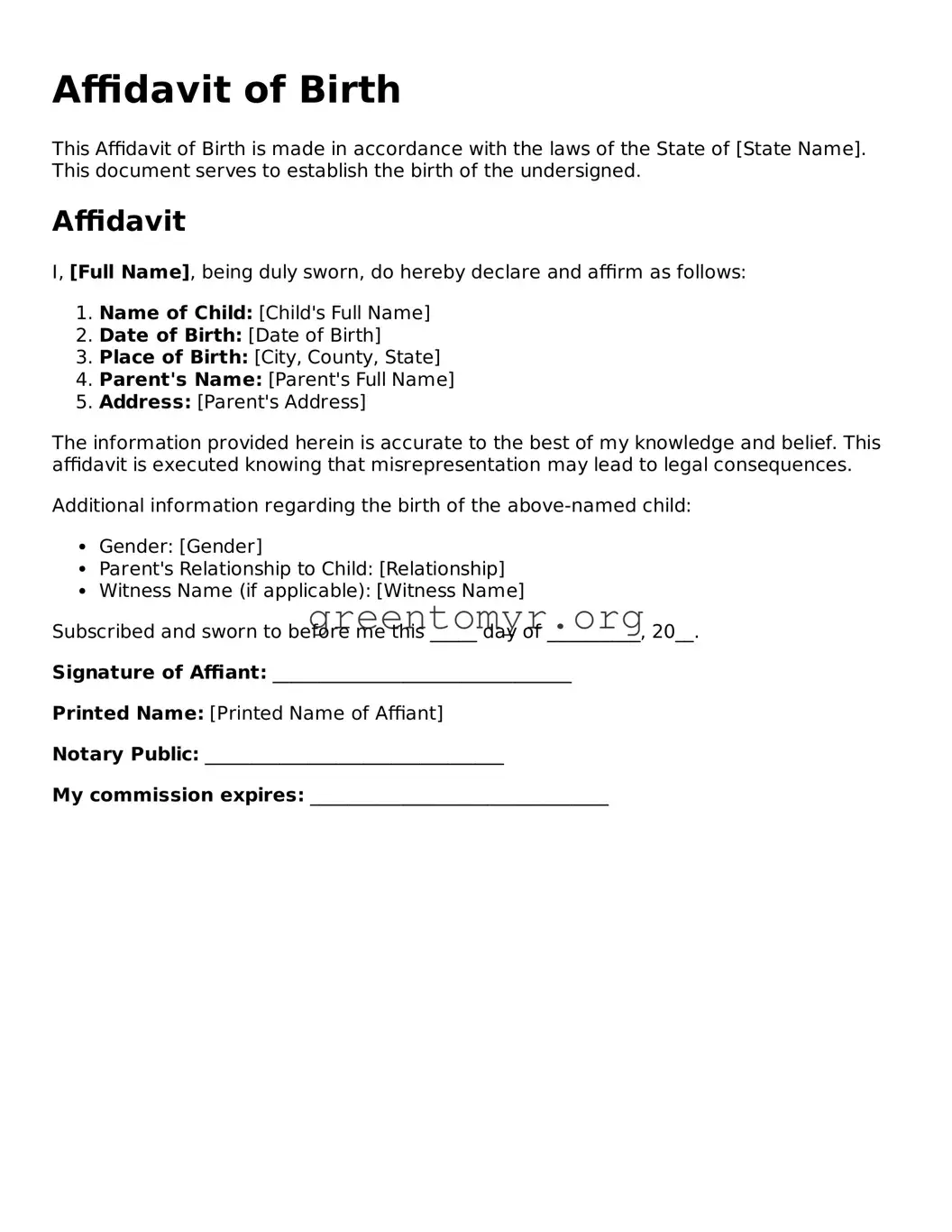Affidavit of Birth
This Affidavit of Birth is made in accordance with the laws of the State of [State Name]. This document serves to establish the birth of the undersigned.
Affidavit
I, [Full Name], being duly sworn, do hereby declare and affirm as follows:
- Name of Child: [Child's Full Name]
- Date of Birth: [Date of Birth]
- Place of Birth: [City, County, State]
- Parent's Name: [Parent's Full Name]
- Address: [Parent's Address]
The information provided herein is accurate to the best of my knowledge and belief. This affidavit is executed knowing that misrepresentation may lead to legal consequences.
Additional information regarding the birth of the above-named child:
- Gender: [Gender]
- Parent's Relationship to Child: [Relationship]
- Witness Name (if applicable): [Witness Name]
Subscribed and sworn to before me this _____ day of __________, 20__.
Signature of Affiant: ________________________________
Printed Name: [Printed Name of Affiant]
Notary Public: ________________________________
My commission expires: ________________________________
